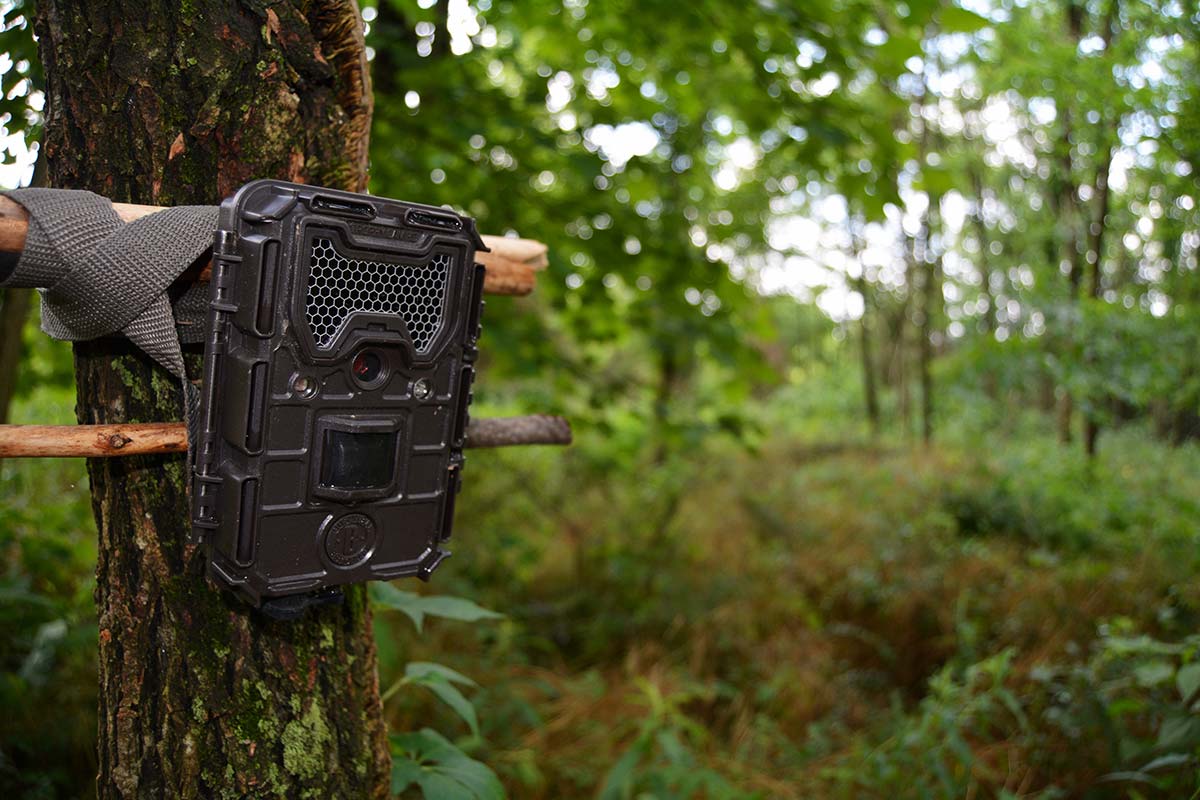Hunting is more than just pointing a gun at a quarry and pulling the trigger. A significant amount of scouting and surveillance is involved before you even get to that point. Game animals are not going to line up and wait for you to take them out one at a time once you show up on the field. It’s crucial that you learn as much as you can about your quarry – including its feeding habit and behavior, among other info. If you go in completely blind, you’ll end up empty-handed.
Game scouting still requires you to be out on the field, often without assurance that you’re going to go home with any useful info. But with the help of trail cameras, you can drastically boost your productivity and cut the amount of time you spend in the wilderness. In the early days of trail cameras, they were more of a burden than a useful tool due to their impractical and primitive design. That’s not the case anymore, thanks to the evolution of technology; these days, trail cameras are a lot more capable and reliable.
If you want to improve your hunting experience, then you’ve come to the right guide. This guide will help you shop for the best trail cameras on the market. As with other hunting gear, shopping for trail cameras can be confusing due to the dozens of options in front of you, from budget trail cameras to higher-end trail cameras. With this guide, you can choose from an already curated list of products, significantly shortening your shopping time.
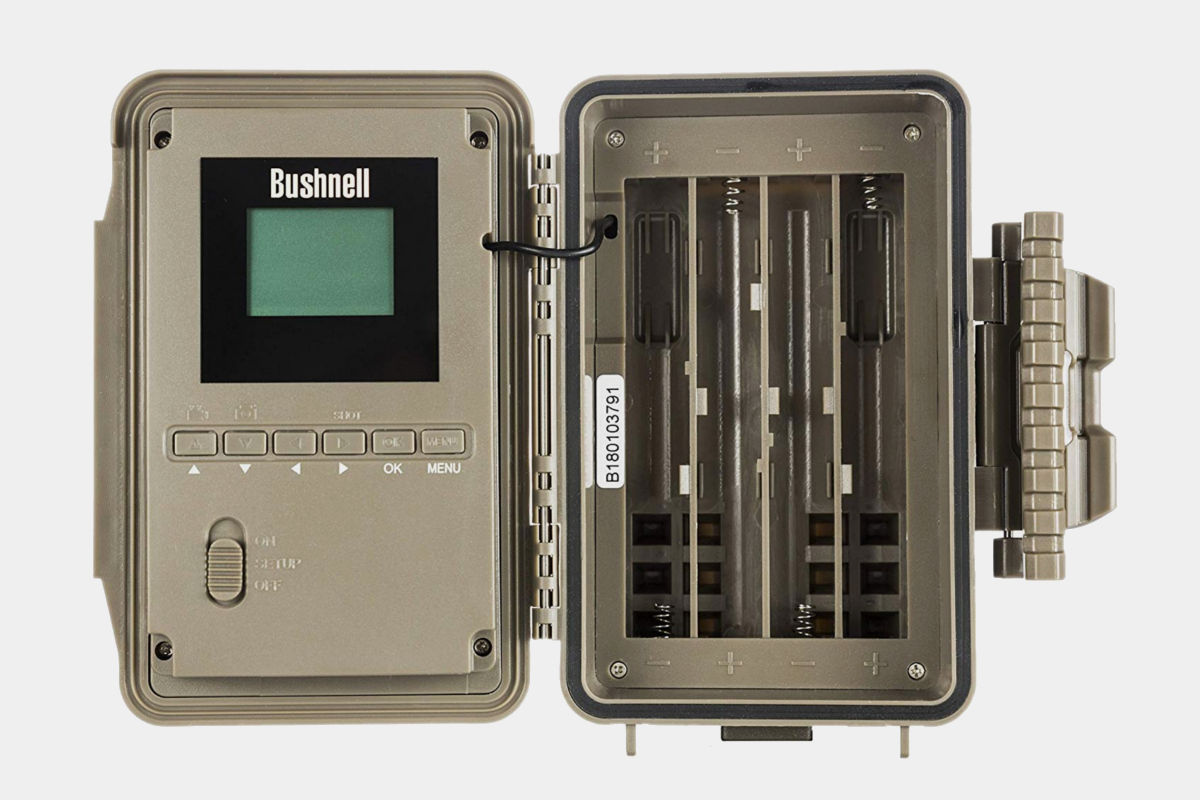 Bushnell Trophy Cam HD Essential E3
Bushnell Trophy Cam HD Essential E3
The E3 is a rugged trail camera with a low glow infrared flash for nighttime scouting. It has adjustable image capture settings, with the option to snap up to three images on a single trigger. Speaking of which, it boasts an ultra-fast trigger time of just 0.3 seconds with a one-second recovery speed and has an impressive detection range. It can capture a high-resolution video with a max length of 60 seconds and has an efficient battery usage, making it a reliable trail camera for all-season game surveillance.
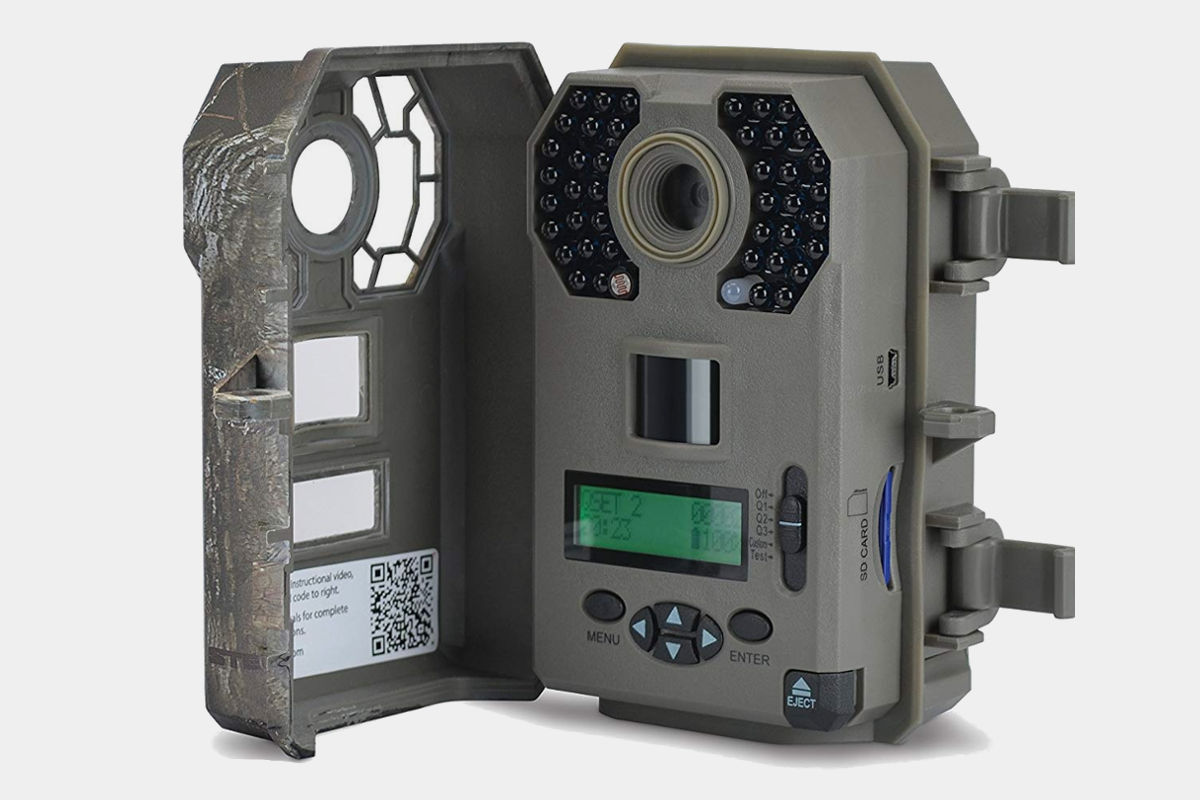 Stealth Cam G42 No Glow Trail Camera
Stealth Cam G42 No Glow Trail Camera
It has four resolution settings, with 10 MP being the highest, and can record high-definition videos with a 180-second length limit. It comes with a rapid-shot mode, which allows it to take up to nine pictures in a single burst, and a time-lapse mode. It’s easy to use due to a simple interface with a backlit display and has password protection.
The G42 snaps crisp and vivid images at daytime and detailed images at nighttime, with its blur reduction feature further enhancing the overall image quality. It has a USB output as well as an SD card slot, which can hold a memory card with a 32 GB max capacity.
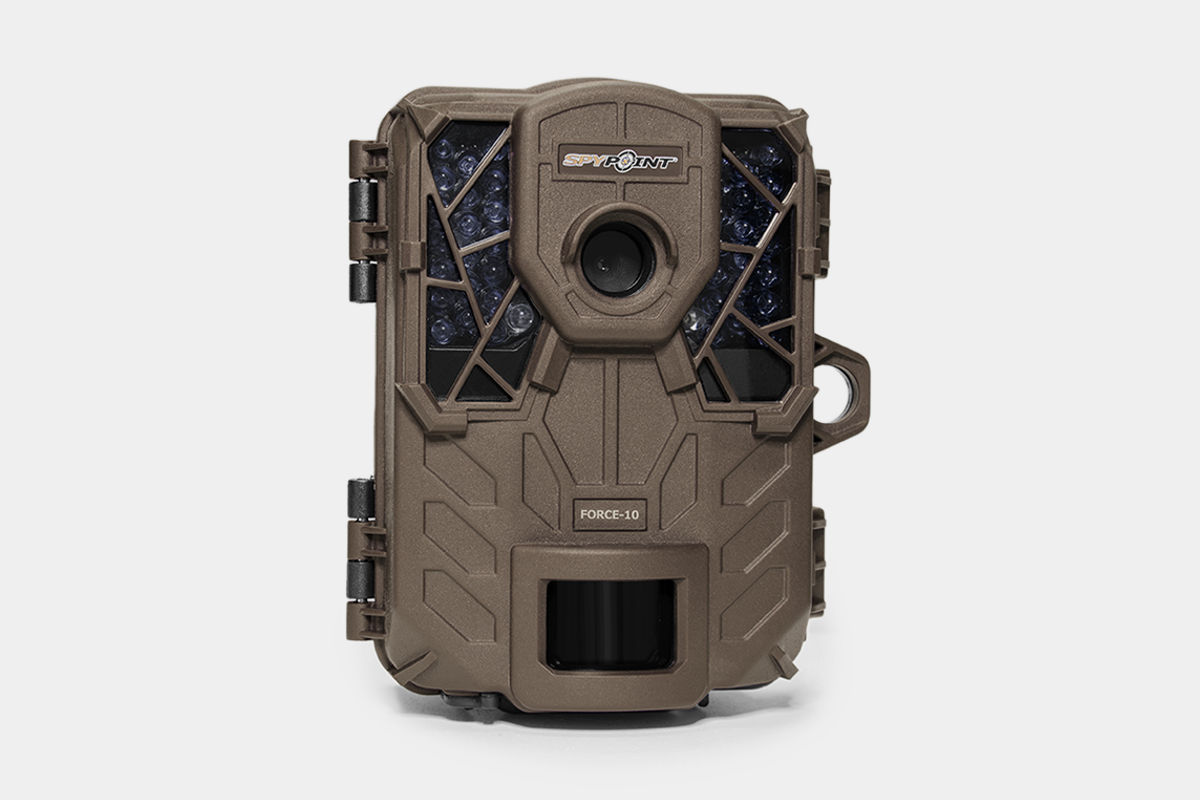 Spypoint Force-10
Spypoint Force-10
While the Force-10 snaps good daytime and nighttime images, it runs into some issues when dealing with moving animals, making it not the most ideal game camera for fast-moving quarries. The video output, on the other hand, is good but not as bright as the output of the other products on this list. Overall, the Force-10 is a reasonably priced game camera that offers good long-term value. It falls a bit short in the overall image quality department but makes up for it with its fast trigger time and good range.
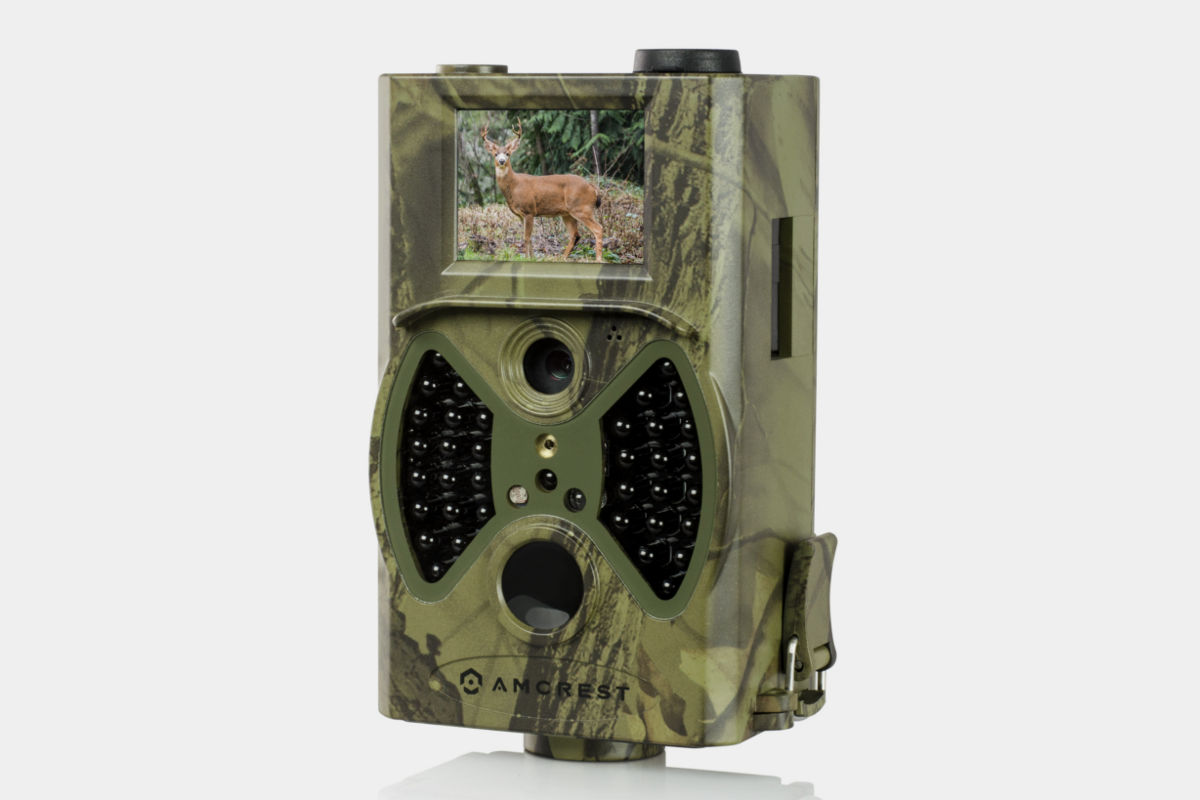 Amcrest ATC-1201
Amcrest ATC-1201
An infrared flash-equipped trail camera, the ATC-1201 is reliable for both day and night scouting, but don’t expect an ultra-fast trigger time. It has a trigger time of 0.7 seconds, which is slow compared to the trigger time of the Spypoint Force-10. It comes with a USB port and an SD card slot, both of which are located above the battery compartment. The ATC-1201 is another solid option for hunters who don’t want to spend a large sum of money on a trail camera.
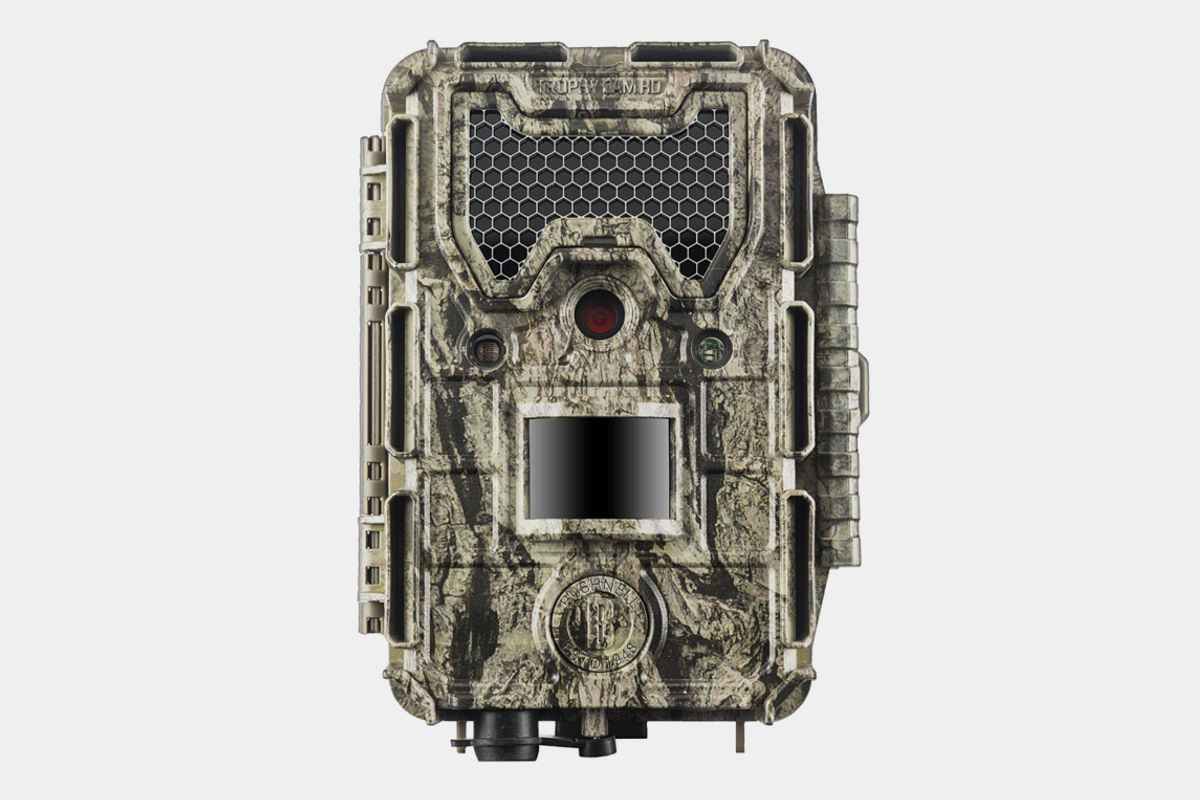 Bushnell Trophy Cam HD Low Glow (Camo)
Bushnell Trophy Cam HD Low Glow (Camo)
Capable of capturing videos in high resolution, this low glow infrared trail camera has an even better trigger time than the Trophy Cam HD Essential E3. It has an extremely fast trigger time of 0.2 seconds and a recovery speed of around 0.5-0.6 seconds. Combine all of that with a 100-foot detection range and this scouting gear easily comes out as one of the most effective trail cameras that you can get for around $100. It’s easy to set up and use and boasts a robust case.
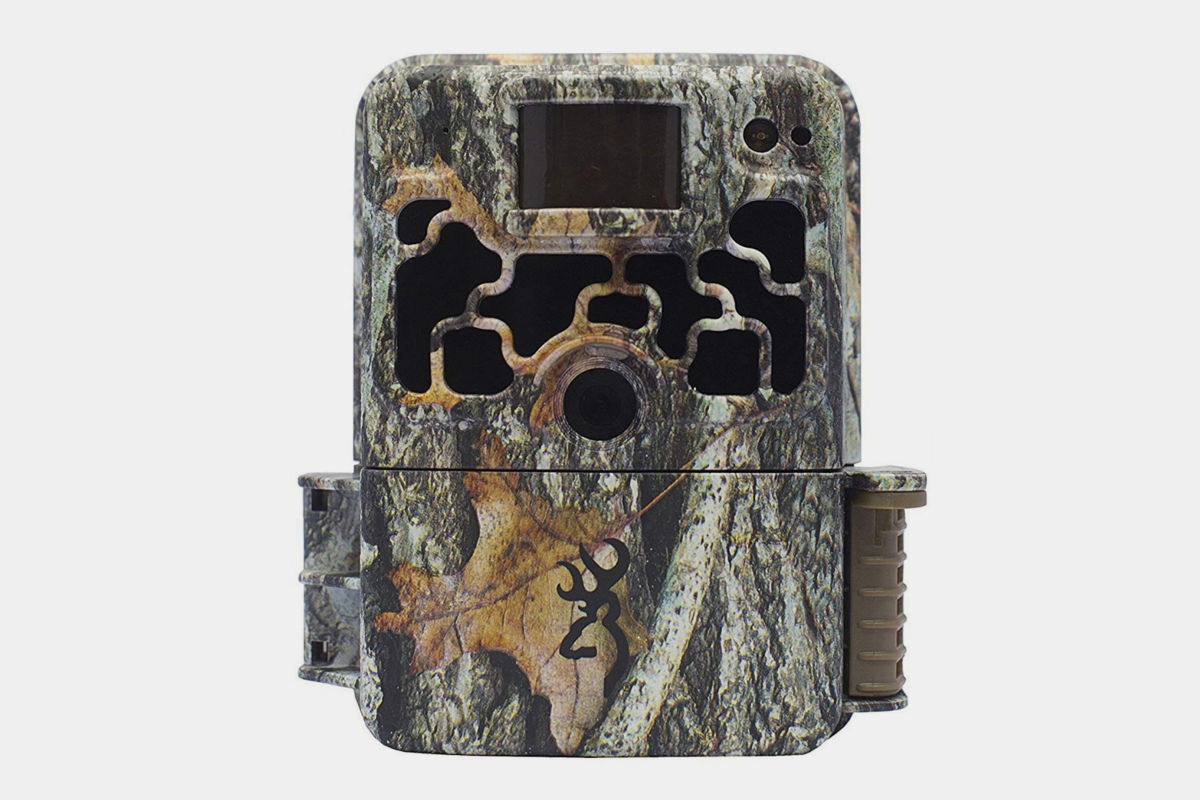 Browning Dark Ops HD 940
Browning Dark Ops HD 940
Of the different models in the series, the 2017 Dark Ops HD 940 offers the best value, considering its price point. It’s a trail camera equipped with a no glow infrared flash, making it ideal for nighttime scouting. It has a 0.4-second trigger time, a 0.8-second recovery speed, and an 80-foot detection and flash range. It includes multiple image capture settings, including a burst-shot setting, and an external power option.
The most impressive thing about the 2017 Dark Ops HD 940 is that it can accommodate a 512 GB memory card. That’s not a typo, gentlemen. Most trail cameras on the market cap out at 32 GB. With that much storage, this unit is easily one of the most suitable trail cameras for extended game scouting.
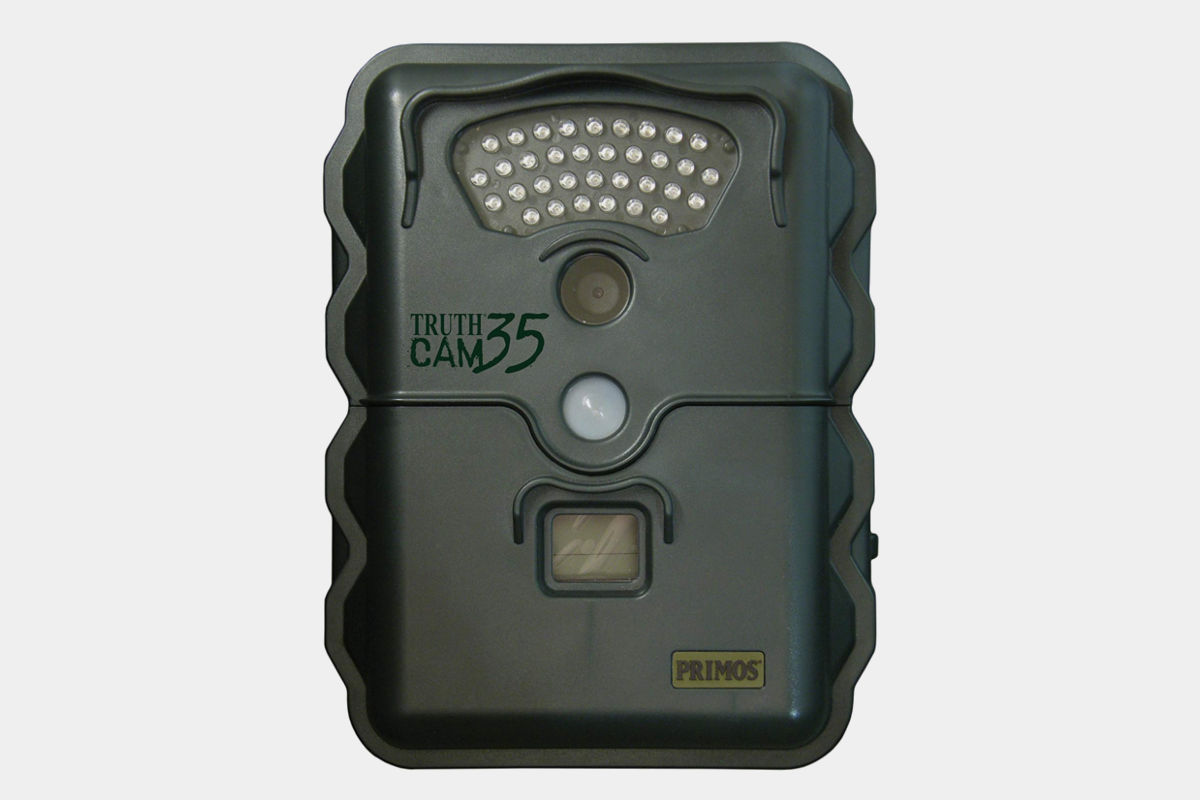 Primos Truth Cam 35
Primos Truth Cam 35
Instead of AA batteries, which is the most common power source of trail cameras, the Truth Cam 35 is powered by four D cell batteries. It has an easy-to-navigate interface with a backlit screen and comes with anti-theft password protection. It performs well in different light conditions, featuring a 40-foot range with a trigger time of 1.5 seconds out of sleep mode. Although not the most impressive in terms of overall specs, the Truth Cam 35 is one of the best and most reliable trail cameras on the market.
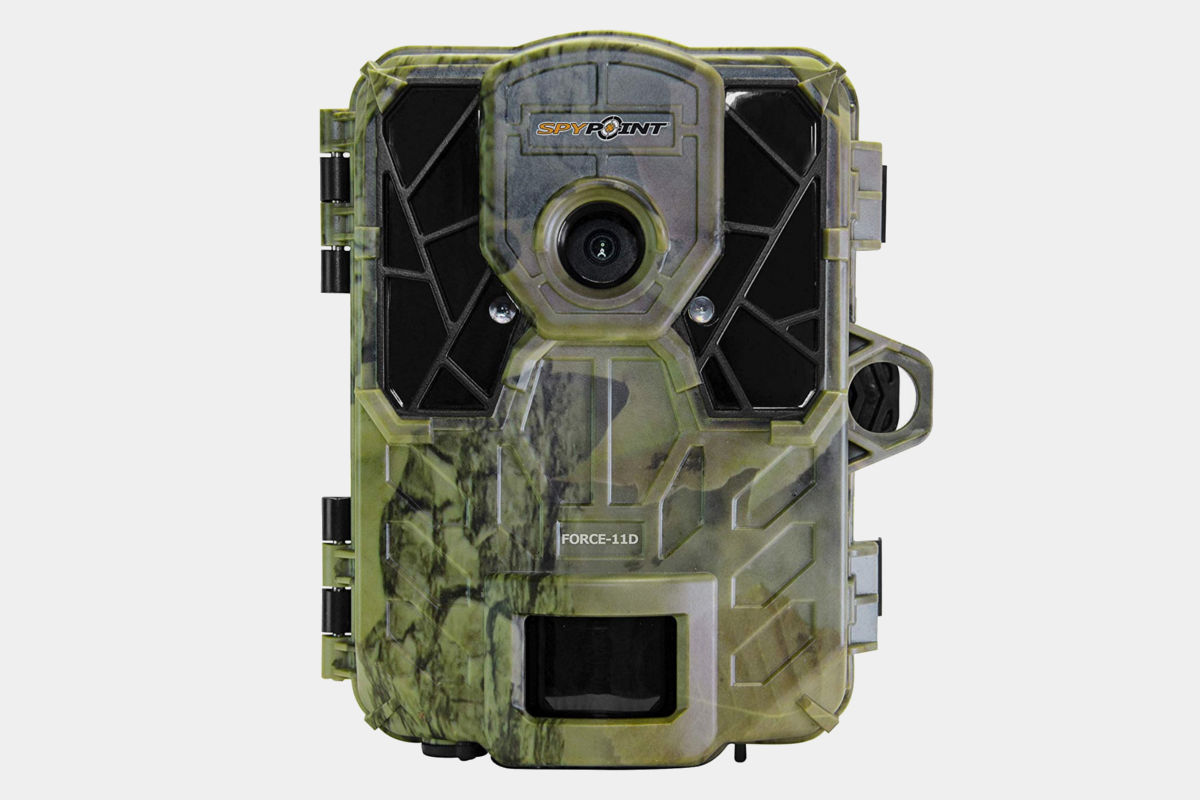 Spypoint Force-11D
Spypoint Force-11D
Despite its fantastic trigger time, a lot of people are not all that impressed with the Force-11D, and the biggest reason is the rather unbalanced overall image quality. It can produce great daytime images, complete with date, time, temperature, and moon phase stamps. But when it comes to nighttime images, the Force-11D has flash and blurring issues. In short, this infrared trail camera is a solid choice for daytime scouting but probably not the most ideal for nighttime surveillance.
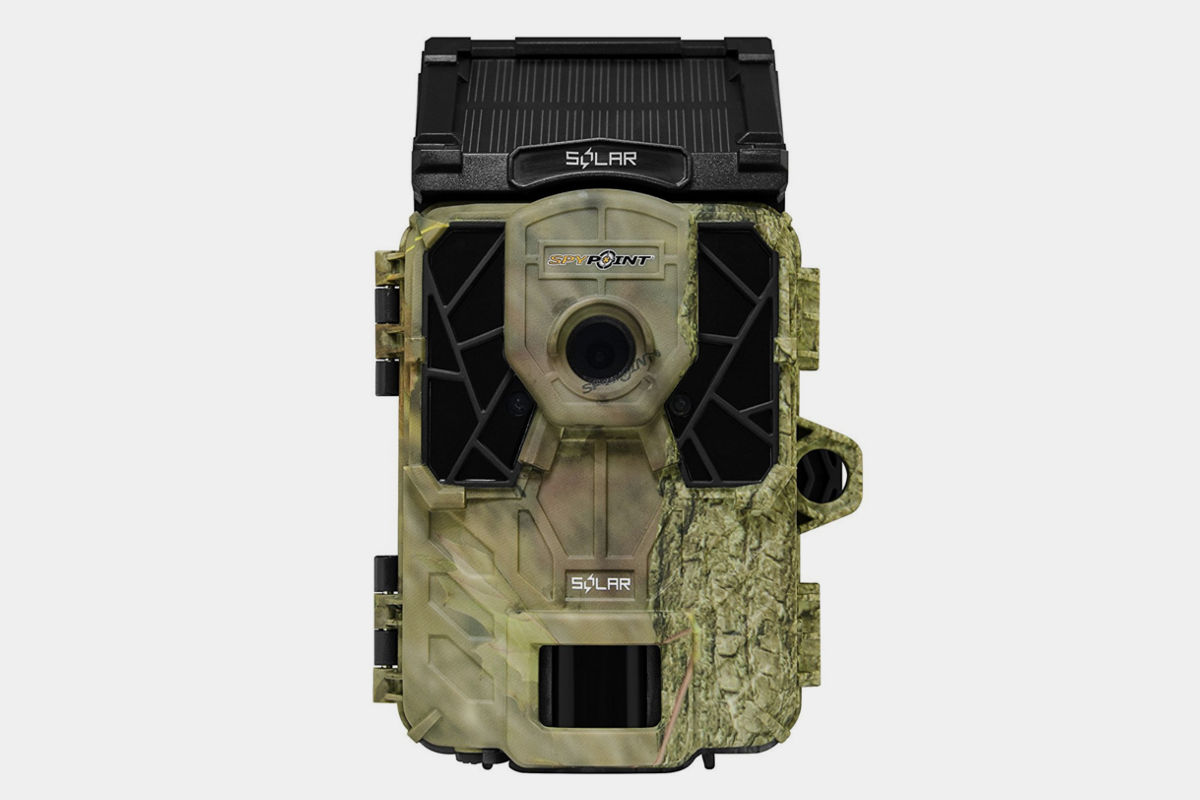 Spypoint Solar
Spypoint Solar
Concerning overall performance, the Solar is basically the same as the Spypoint Force-11D, which is both good news and bad news. It has an extremely fast trigger time of 0.07 seconds, comes with multiple image capture settings, and features a good detection range. On the flip side, it has an unimpressive nighttime image and video quality, which can be a deal-breaker for some hunters. But if you value trigger time and battery life more than anything else, you’re going to love this unit.
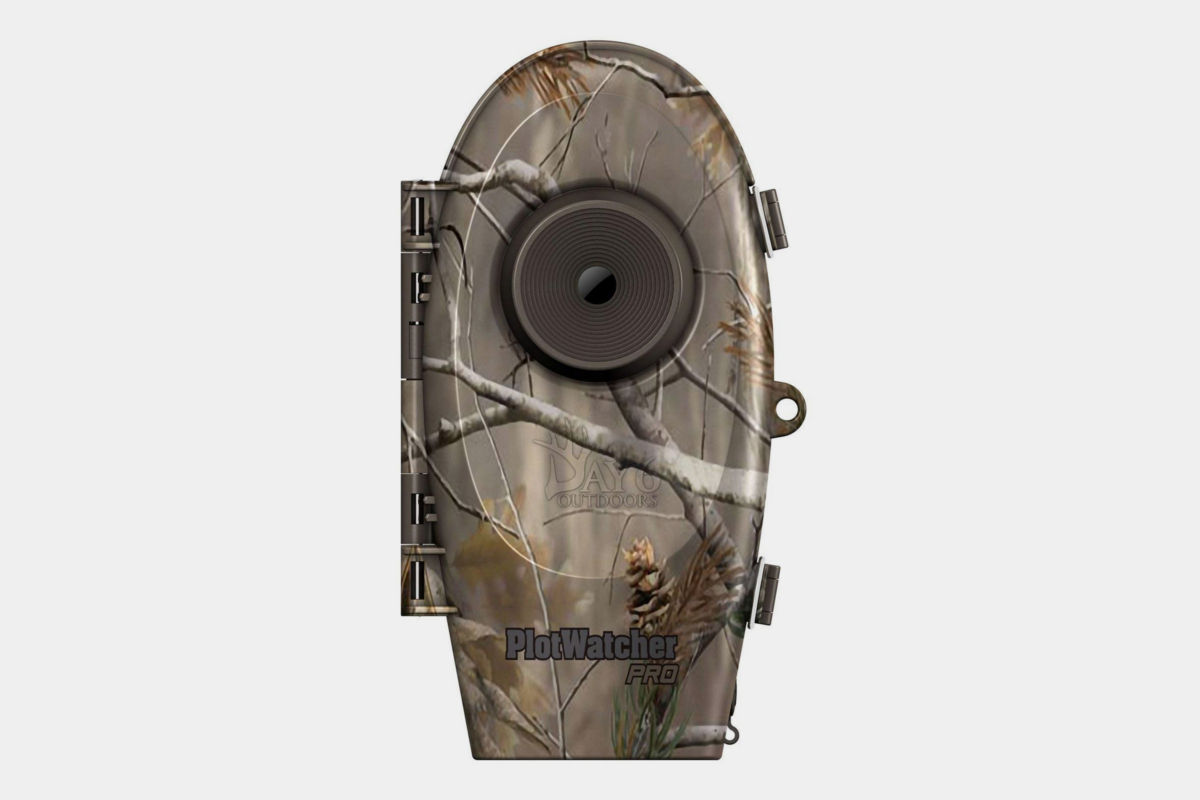 Day 6 Outdoors PlotWatcher Pro
Day 6 Outdoors PlotWatcher Pro
Since the PlotWatcher Pro doesn’t capture images based on movement detection, it is best suited when scouting a large open field. It’s great at capturing images of animals too far away from the camera, the ones that motion-based cameras can’t capture unless they enter the detection zone. Furthermore, the PlotWatcher Pro has an impressive battery life, easily stretching out to up to four months on a single set of AA batteries. If you’re not sold on regular trail cameras, take a look at this cool time-lapse trail camera.
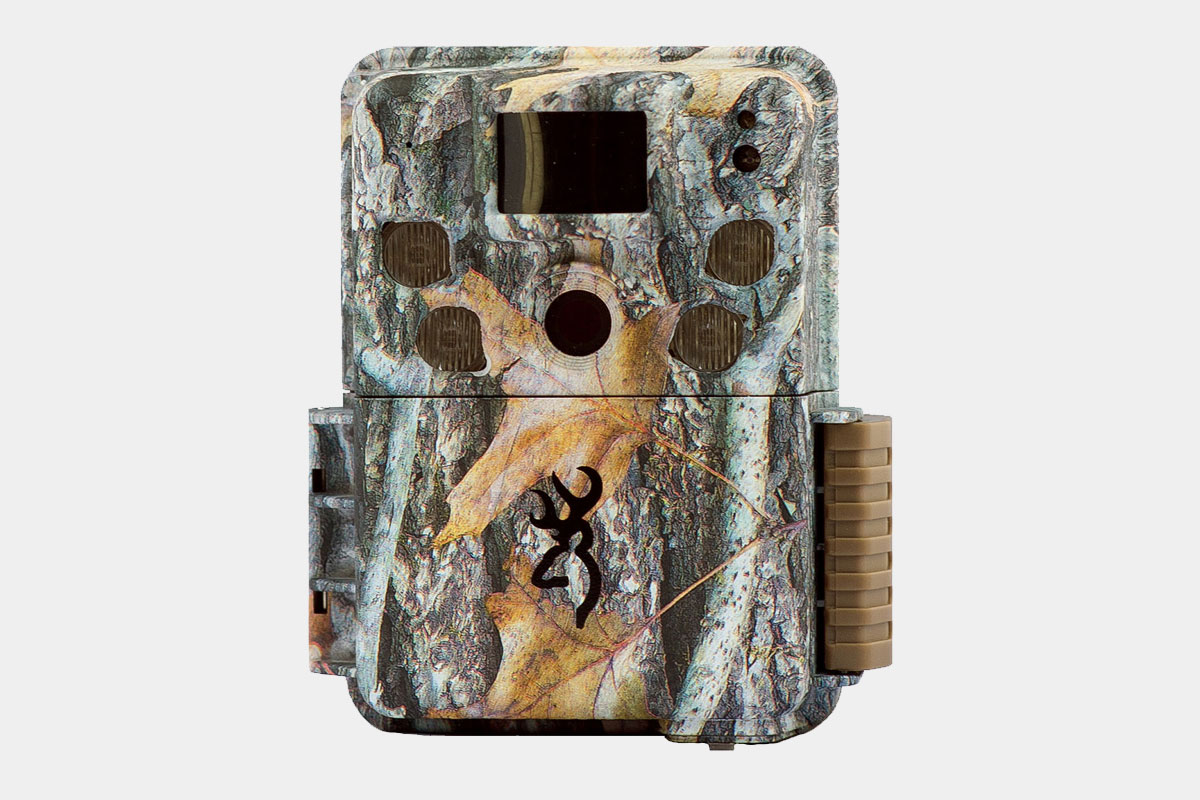 Browning Strike Force Trail Camera HD Pro
Browning Strike Force Trail Camera HD Pro
The Strike Force HD Pro has an 80-foot detection range and a 120-foot flash range, the latter of which is enough to catapult the unit to a top-3 status on this list. It’s got a fast trigger time of 0.3 seconds and a recovery speed of 0.8 seconds and comes with multiple image capture settings. If you want a trail camera that comes with the complete package – including outstanding overall image and video quality – get your hands on this item.
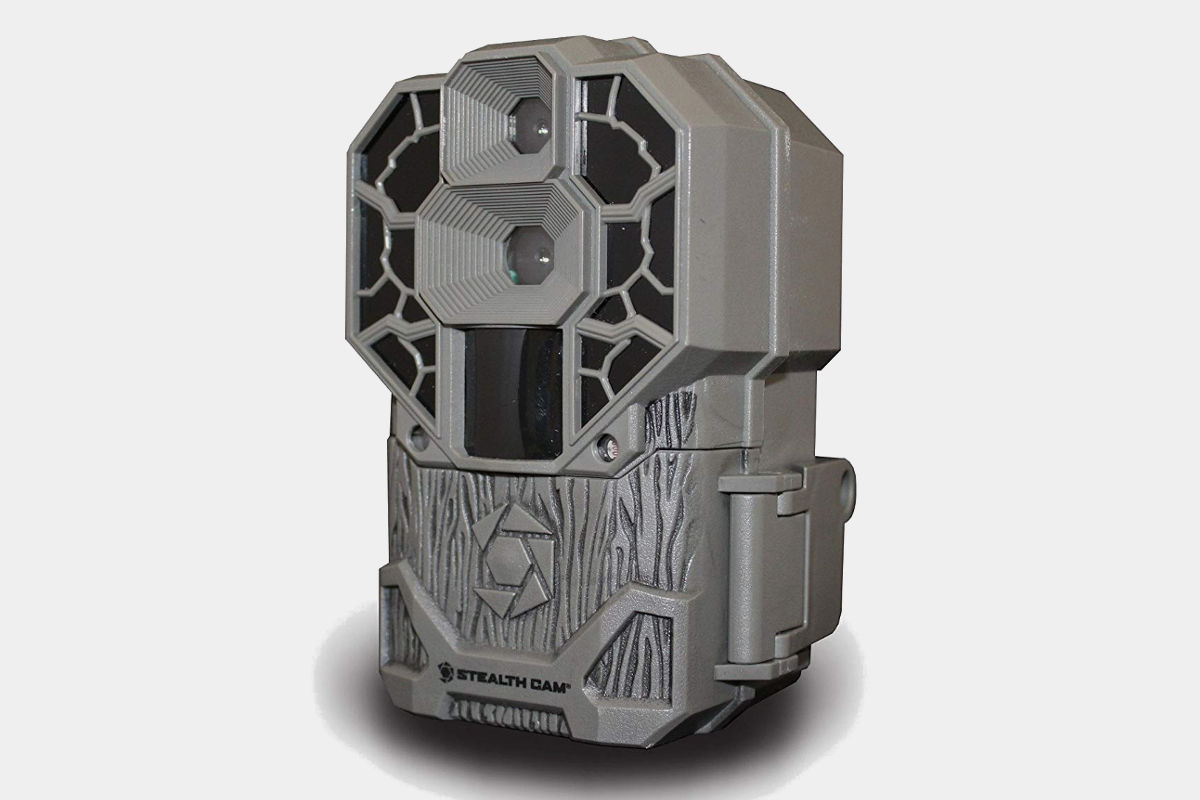 Stealth Cam DS4K
Stealth Cam DS4K
That’s not the only good thing about the infrared flash-equipped DS4K. It also boasts a fast trigger time of 0.4 seconds, a 100-foot flash range, and an efficient battery consumption, along with password protection and memory card support up to 512 GB. The best part is that you don’t have to cough up a huge fortune to get this trail camera.
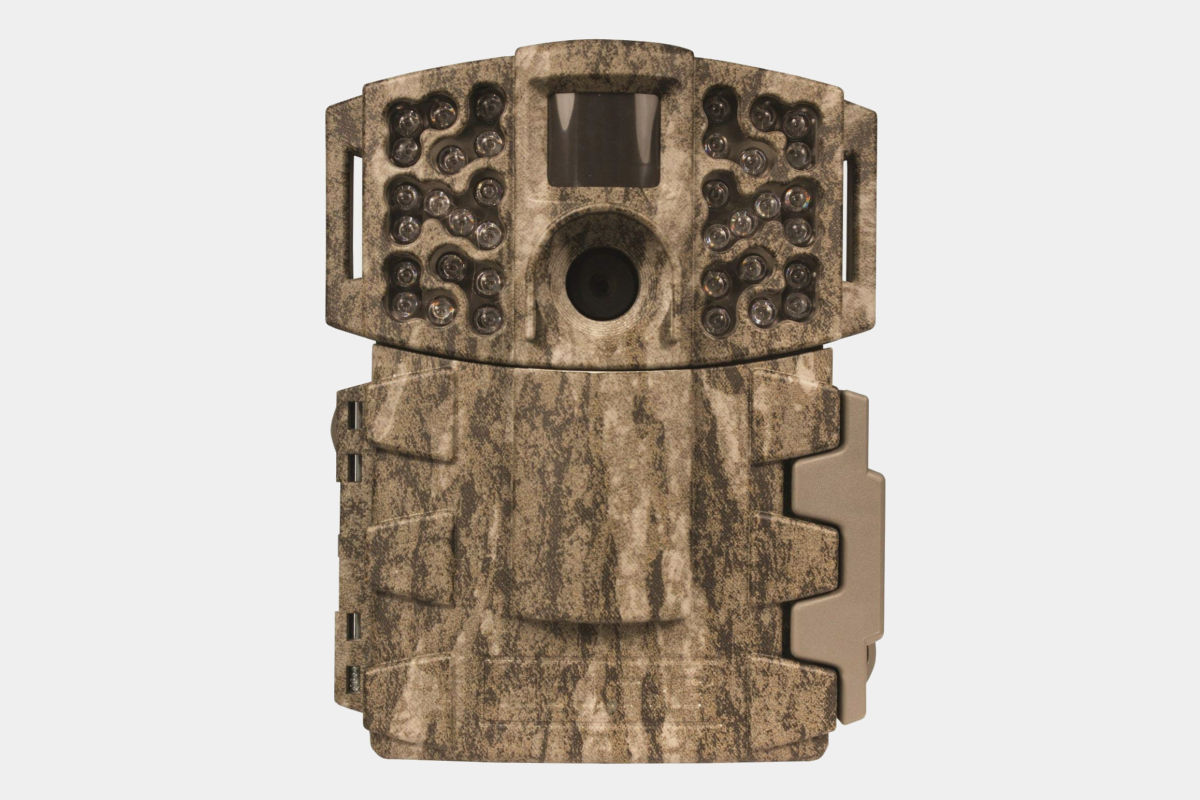 Moultrie M-880 (Gen 2)
Moultrie M-880 (Gen 2)
The M-880 can capture daytime and nighttime pictures and videos with impressive quality. It works really well during nighttime, featuring a 100-foot flash range and a 50-foot detection range. It’s got a relatively slow video trigger speed, though – a distinction that also applies to other models in Moultrie’s Trail Camera M-series.
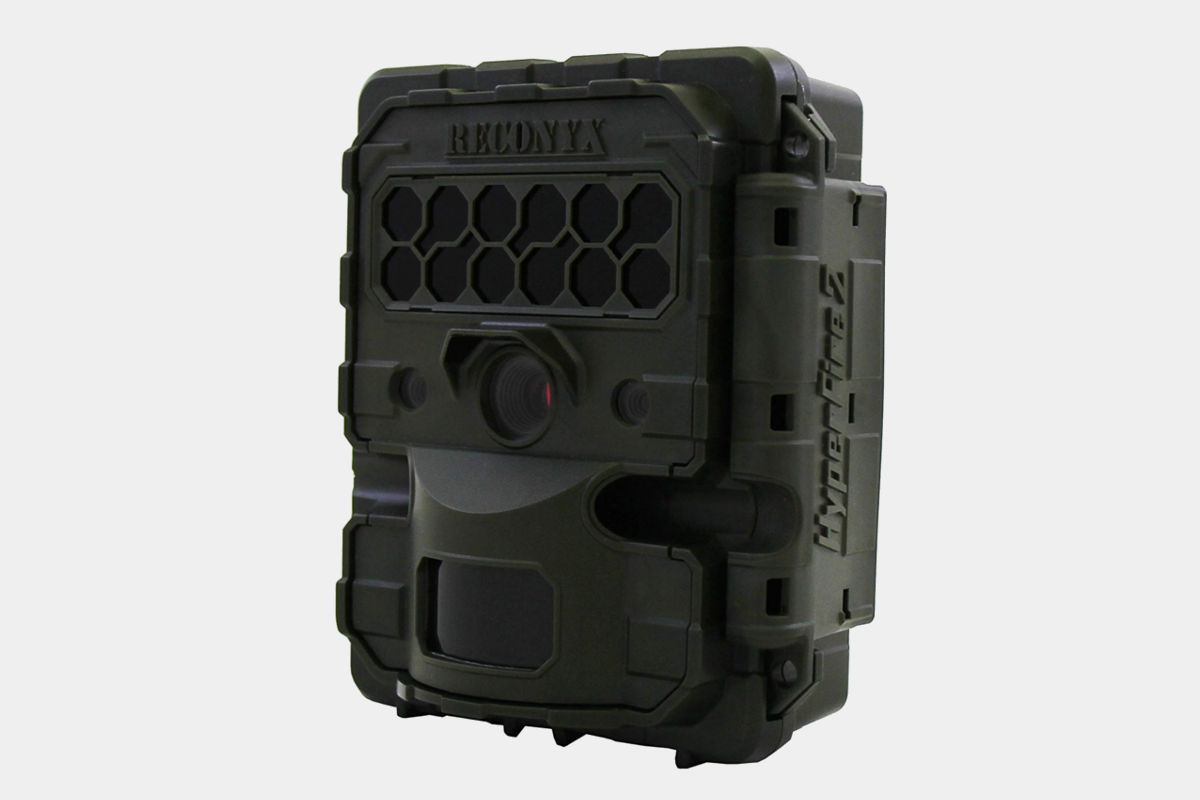 Reconyx HyperFire 2
Reconyx HyperFire 2
Capable of producing pictures with outstanding quality, the HyperFire 2 has a fast picture and video trigger time and a long battery life. It can easily run for more than a year before it requires a battery replacement, assuming it’s mainly operating in picture mode. Speaking of which, you’ll want to stay in that mode for the most part since the HyperFire 2’s video quality is below average.
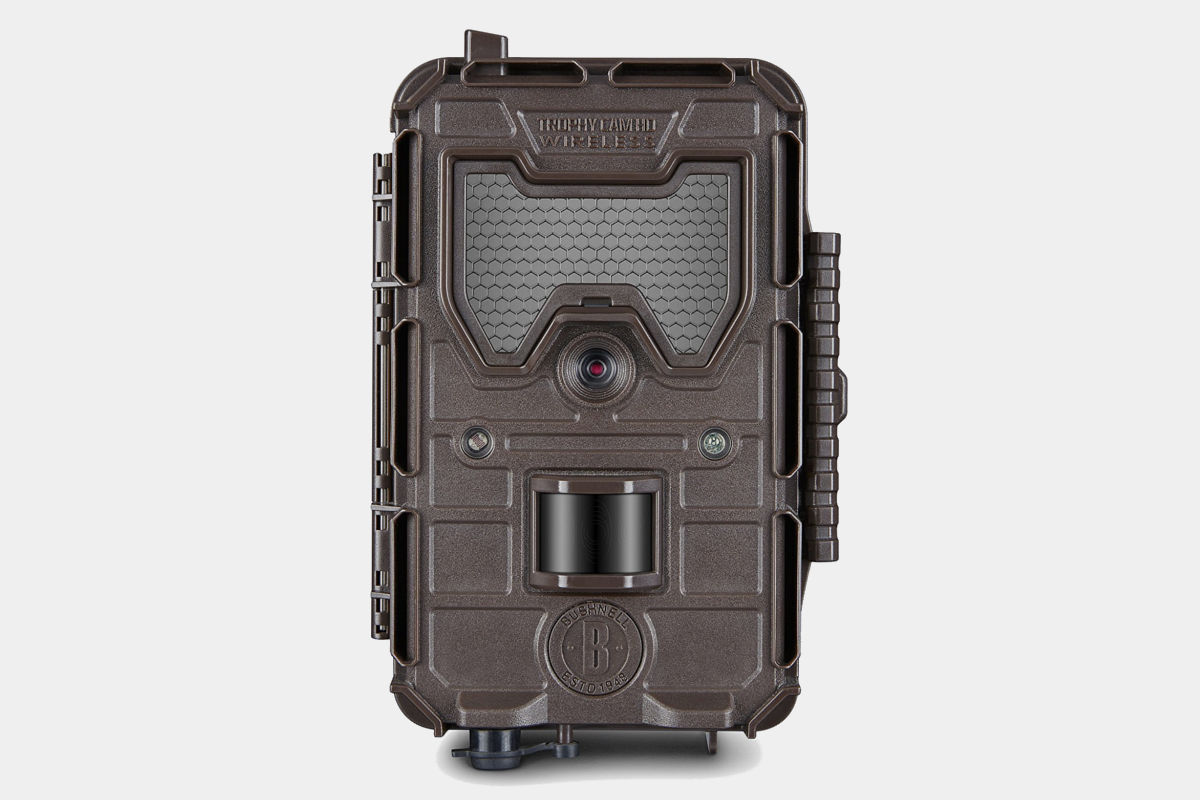 Bushnell Trophy Cam HD Aggressor Wireless Game Camera
Bushnell Trophy Cam HD Aggressor Wireless Game Camera
It’s got a good detection range, too. With the wifi trail camera connectivity, you get to see the snapped images on your specified device right away. It has a recovery speed of almost one second, which is fast for a cellular trail camera. This unit’s major drawback is that it requires an almost perfect reception in order to be as effective as possible. With a poor reception, you’re just going to end up with a lot of late image uploads.
Trail Cameras 101
Some of you are probably not even aware of what trail cameras are and how to use them. No need to be embarrassed or feel misinformed; not everyone is up-to-date when it comes to technology. Instead of jumping straight to our products list, we’ll start from the bottom and give you a short introduction to trail cameras. (If you already have a good understanding of trail cameras, feel free to skip this section and head straight to the individual product descriptions.)
A trail camera or game camera is a battery-powered compact device you can use to observe a specific area and learn about the wildlife in that area from a distance. In its most basic form, it can take pictures and record activity within a set range, doing so automatically with no need for constant human intervention. After a certain number of days, you can go back to it, get the stored files, and then leave it behind again. Using those files, you can learn a great deal about your target animals, allowing you to get a solid grasp on where and when to hunt and set up for the kill.
There are different trail cameras on the market. Some can take pictures and record videos even at night and are equipped with a camo case. Others feature a built-in viewing screen and can run on external power. There are also wireless trail cameras with accessibility via cellular technology, allowing you to access the stored files remotely, which is extremely convenient.
A trail camera is most effective when used correctly, which can be said for all other hunting equipment. If mounted in the wrong place, a trail camera is basically useless. So before you set up your scouting gear, you need to do your homework and manually identify an optimum location based on ground clues like animal tracks. Once you have identified a good location, the next step is to find the best mounting spot for your trail camera. Go for a spot where it has an unobstructed view of the trail, and make sure you can easily access it when you need to change the batteries or adjust the camera angle.
For both new and veteran hunters, a trail camera is a huge asset. It can make scouting quarry easier and more convenient. It’s durable and rugged enough to survive bad weather conditions and doesn’t require a lot of maintenance, making it a reliable standalone hunting equipment.
Trail Camera Buyer’s Guide
As previously mentioned, trail cameras come in different forms and pack different features. There are several aspects you need to take into account before you open your wallet. Here are the most important things you must consider when shopping for the best trail cameras:
Storage capacity and battery life: We lumped these two together because both determine how long you can leave your trail camera in the wilderness. The larger the storage and the longer the battery life, the better. It’s simple math. With more storage and a longer battery, you can snap more images and record more videos.
Trigger time: The trigger time refers to how fast a trail camera can snap an image when triggered. The lower the number, the better. The best trail cameras have a trigger time of way less than one second when in picture mode, with the fastest ones featuring a trigger time of 0.3 seconds or less. Of the products included in this guide, the Spypoint trail cameras offer the fastest picture triggers.
Recovery speed: The recovery speed refers to how fast a trail camera can capture an image and get ready to capture the next one. As with the trigger time, the lower the number, the better. A trail camera with a fast picture recovery speed allows you to take multiple good shots of a fast-moving quarry.
Picture quality: A trail camera’s megapixel rating is not the only variable that determines the overall picture quality – although a lot of companies love to highlight that spec, claiming that their product has top-class picture quality just because it has a high megapixel count. The only way to judge a trail camera’s picture quality is to check sample shots from other users; it’s even better if you can test the product. Obviously, you’ll want a trail camera that can produce good daytime and nighttime images.
Flash type: At night, the picture quality largely depends on the trail camera’s flash. There are different types of flash technology, each with their own pros and cons. For example, a trail camera equipped with a white flash can produce better pictures on average – but it can scare away animals. On the other hand, a trail camera with an infrared flash is more subtle, snapping pictures without alarming animals, but at the expense of picture quality.
Detection and flash range: These are pretty much self-explanatory. The detection range determines the reach of the trail camera’s motion sensor. The longer the detection range, the better the chances of capturing images of animals far away from the camera. Meanwhile, the flash range refers to how far the flash will extend during nighttime surveillance. The longer the flash range, the better the images you get. When it comes to detection range and flash range, trail cameras have different ratings.
Viewing options: This refers to the ways you can view or access the stored pictures and videos. While there are higher-end cellular-based trail cameras that allow you to view stored files remotely, the majority of trail cameras allow you to view images on a computer either via a direct connection or through a memory card reader. Some models are also equipped with a small onboard screen, allowing for a quick look at the stored images.
Build quality: Although trail cameras are specifically built for the wilderness, you still have to be mindful of their toughness, weather protection, and overall construction. For example, some trail cameras are waterproof while others are merely water-resistant.
Consider all of these aspects before you commit to a specific trail camera. It’s easy to go for the best-reviewed or most recommended product on the market. But keep in mind that what works for other people may not work for you. A trail camera with a massive storage, for example, is not necessarily the most ideal for you if your strategy is to check on your scouting gear and empty its storage on a daily basis. In short, go for a trail camera that best addresses your needs.
